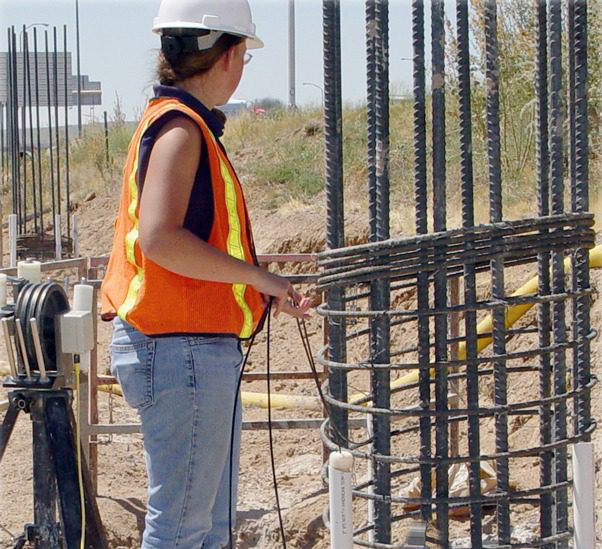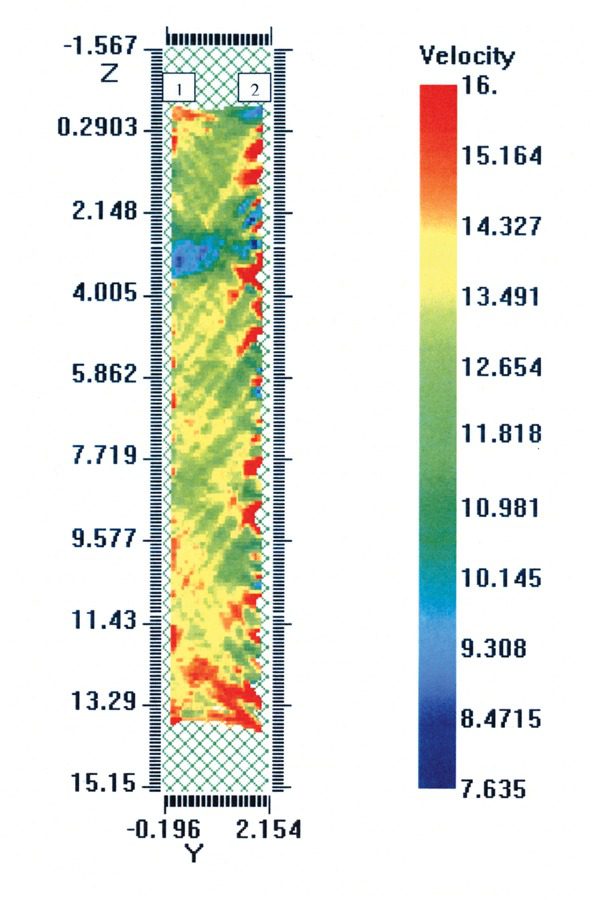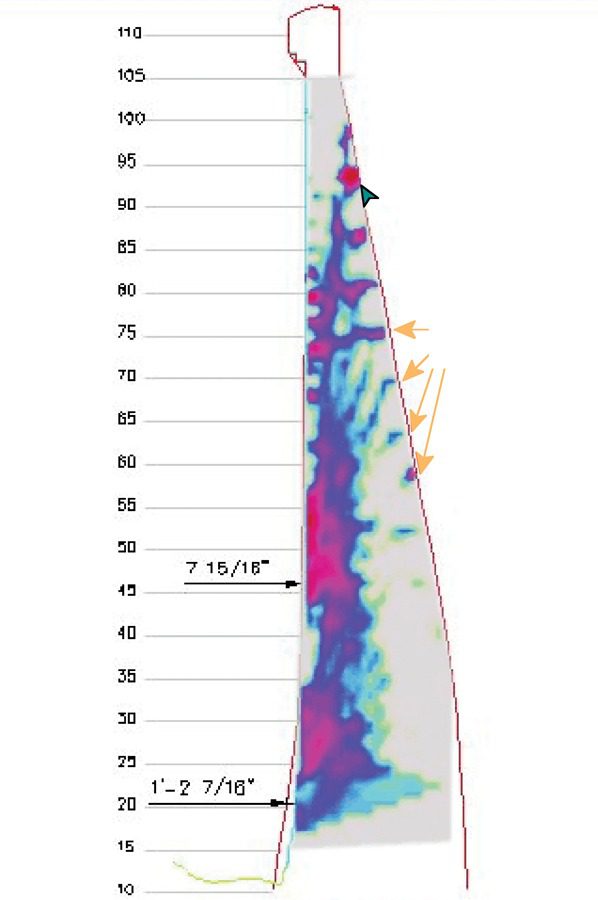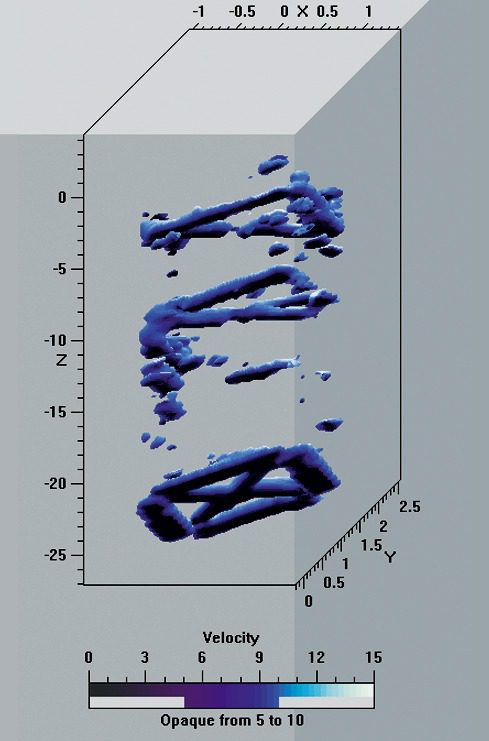Crosshole Tomography

Crosshole Tomography (CT) testing and analysis is normally used in conjunction with Crosshole Sonic Logging (CSL) testing to provide additional information as to the size, shape, and location of a defect which has been located with standard CSL testing. The CT method uses data from multiple CSL logs at different source-receiver height offsets to generate a 2D image slice of the material between a pair of access tubes in a shaft. If data is collected between multiple access tubes, the data sets can be combined to create a 3D image model of the interior of the shaft concrete, including any defects. The images created allow engineers and contractors to determine if repairs are needed, and where the repairs need to be performed.
For situations where simple CSL test results are not enough, CT testing allows us to create an image of the size, shape, and severity of any defects present in a drilled shaft. Tomography software analyses provide 2D and 3D display of internal concrete conditions, including animation of defects.
Applicable on:
- Concrete Drilled Shafts and Diaphragm Foundation Walls
- Slurry Walls
- Mat Foundations
- Mass Concrete Placements
Test for:
- Velocity Tomogram Images of Voids/Soil Intrusions
- Honeycomb
- Cracks
- Uncured or Weak Concrete





